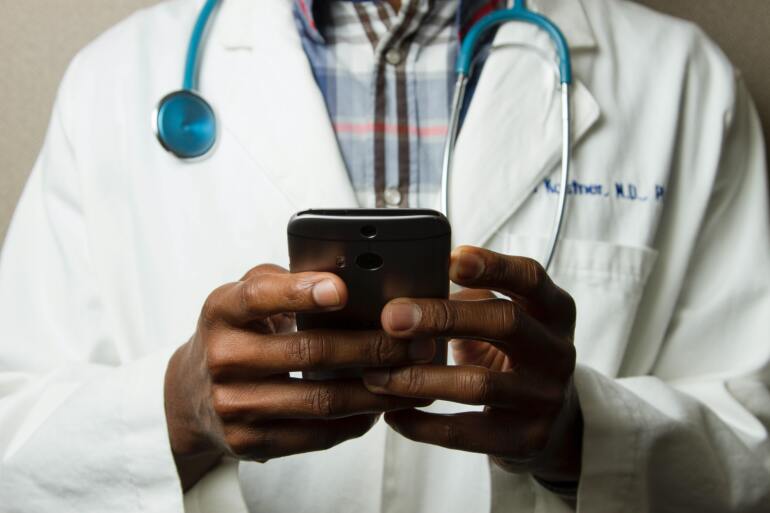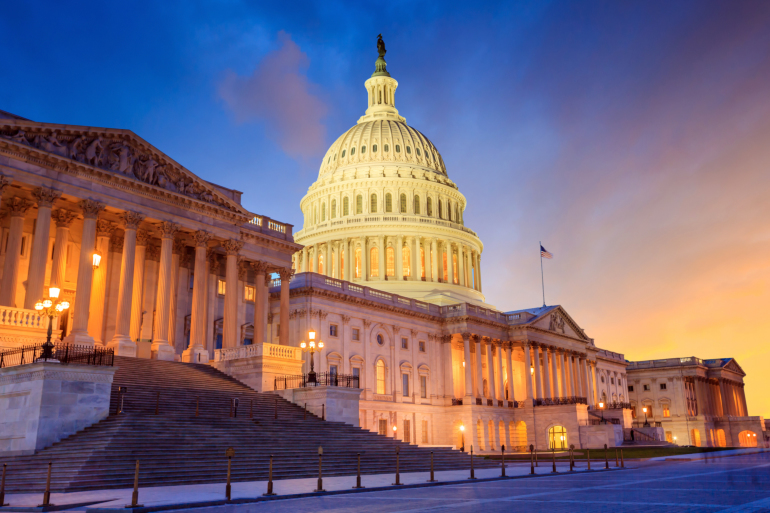Legal Update
Apr 29, 2020
Update: Paycheck Protection Program and Health Care Enhancement Act Increases Funds Available to Hospitals and Health Care Providers
Sign up for our Coronavirus roundup email.
Visit our Coronavirus resource page.
On April 24, 2020, the Paycheck Protection Program and Health Care Enhancement Act was signed into law, appropriating $75 billion for hospitals and other eligible health care providers for health care related expenses or lost revenues due to COVID-19 (supplementing the $100 billion initially appropriated under the CARES Act Provider Relief Fund), $25 billion for COVID-19 testing, $310 billion in additional lending authority for the Paycheck Protection Program and $60 billion in additional funding for separate economic injury disaster loans and grants to small businesses.
Funding for Hospitals and Health Care Providers
The eligibility and other requirements for obtaining and using funds allocated to health care providers under the original CARES Act remain the same for the additional funding approved under the Paycheck Protect Program and Health Care Enhancement Act. In particular, the funds are available to pay for harm across the health care system due to the stoppage of elective procedures, as well as the direct economic impact of caring for COVID-19 patients. The Act authorizes the Secretary of HHS to make prospective payments of these funds, as well as retrospective payments of the funds. Eligible health care providers1 that receive funds are required to keep documentation specified by the Secretary, and to submit an application to the HHS justifying the need for funding, and the HHS will review the applications. HHS may make payments on a rolling basis. Funds may be in the form of grants or other mechanisms, and may not be used to reimburse expenses or losses that have reimbursed from other sources or that other sources are obligated to reimburse. The funding is available for reimbursement for health care-related expenses and lost revenues attributable to COVID-19, including payments for medical supplies and equipment (including personal protective equipment); expansion of hospital space (including building or construction of temporary structures, leasing properties, retrofitting existing facilities, and surge capacity); and increased employee headcounts and worker trainings.
Funding for Testing
The $25 billion set aside for testing is intended to cover necessary expenses to research, develop, validate, manufacture, purchase, administer, and expand capacity for COVID-19 tests to effectively monitor and suppress COVID-19 and is further broken down as follows:
- $11 billion for States, localities, territories and tribes to develop, purchase, administer process and analyze COVID-19 tests, increase laboratory capacity, trace contacts and support employer testing and other related activities related to COVID-19 testing. Of the $11 billion, at least:
- $2 billion will be provided to States, localities and territories in accordance with the Public Health Emergency Preparedness grant formula, ensuring every state receives funding;
- $4.25 billion will be allocated to States, localities and territories based on relative number of COVID-19 cases; and
- $750 million will be set aside specifically for tribes, tribal organizations and urban Indian health organizations, or health service providers to tribes, in coordination with Indian Health Service.
- $1 billion for the US Centers for Disease Control and Prevention (CDC) for surveillance, epidemiology, laboratory capacity expansion, contact tracing, public health data and surveillance and analytics infrastructure modernization.
- $1.8 billion provided to the National Institute of Health to develop, validate, improve and implement testing and associated technologies; to accelerate research, development and implementation of point-of-care and other rapid testing; and for partnerships with governmental and non-governmental entities to research, develop and implement the activities.
- $1 billion for the Biomedical Advanced Research and Development Authority for advanced research, development, manufacturing, production and purchase of diagnostic, serologic or other COVID-19 tests or related supplies.
- $22 million for the FDA to support activities associated with diagnostic, serologic, antigen, and other tests and related administrative activities.
- $825 million for community health centers and rural health clinics.
- Up to $1 billion may be used to cover costs of testing for the uninsured.
States, localities, territories, tribes and tribal organizations receiving funds are required to outline their COVID-19 testing plans, including goals for the remainder of 2020, with respect to numbers of tests needed, estimates of laboratory and testing capacity and plans to ease COVID-19 community mitigation strategies. The Secretary of the HHS is also required to issue, on a recurring basis, reports on testing. Among other things, this report must include, to the extent available, de-identified and disaggregated data on demographic characteristics, including, race, ethnicity, age, sex, geographic region and other relevant factors of individuals tested for or diagnosed with COVID–19, as well as information on the number and rates of cases, hospitalizations and deaths as a result of COVID–19, disaggregated nationally by race, ethnicity, age, sex, geographic reason, and other relevant factors.
***
Updated Guidance on Reimbursements Out of Previously Appropriated Funds
HHS published an update regarding the status of reimbursements out of the Provider Relief Fund, which was established under the CARES Act. $30 billion of the $50 billion allocated to Medicare facilities and providors impacted by COVID-19 was distributed immediately, proportionate to providers' share of Medicare fee-for-service reimbursements in 2019. HHS recently started distributing the remaining $20 billion of the general distribution to providers to augment their allocation so that the whole $50 billion general distribution is allocated proportional to providers' share of 2018 net patient revenue.
On April 24, 2020, a portion of providers automatically received an advance payment based off the revenue data they submit in CMS cost reports. Payments will continue to go out weekly, on a rolling basis, as information is validated. Providers without adequate cost report data on file will need to submit their revenue information to a portal opening as soon as practicable at https://www.hhs.gov/providerrelief for additional general distribution funds. Importantly, providers who receive their money automatically will still need to submit their revenue information so that it can be verified.
Providers who receive funds from the general distribution have to sign an attestation (1) confirming receipt of funds, (2) agreeing to the terms and conditions of payment, and (3) confirming the CMS cost report. The terms and conditions include measures to help prevent fraud and misuse of the funds, and HHS has indicated that HHS will undertake significant anti-fraud and auditing work, including by the HHS Office of Inspector General. To that end, recipients will be required to submit documents sufficient to ensure that the funds they received were used for health care-related expenses or lost revenue attributable to coronavirus.
Additionally, as a condition to receiving these funds, providers must agree not to seek collection of out-of-pocket payments from a presumptive or actual COVID-19 patient that are greater than what the patient would have otherwise been required to pay if the care had been provided by an in-network provider.
Updated Guidance on Government-Owned Hospitals and PPP Loans
Also of note for hospitals, in an Interim Rule announced by the Small Business Administration (SBA) on April 24, 2020, the SBA specified that a hospital that is otherwise eligible to receive a PPP loan as a business concern or 501(c)(3) nonprofit organization will not be rendered ineligible for such a loan due to ownership by a state or local government if the hospital receives less than 50% of its funding from state or local government sources, exclusive of Medicaid.
Economic Uncertainty Certification
In the same Interim Rule, the SBA also reminded borrowers that portfolio companies of private equity funds must apply the SBA affiliation rules at 13 CFR 121.301(f) to determine whether the portfolio companies will be eligible for a PPP loan and likewise reminded borrowers to carefully review whether they can make the required certification on the application form that “[c]urrent economic uncertainty makes [the] loan request necessary to support the ongoing operations of the Applicant,” suggesting implicitly that at least some private-equity owned businesses may not be able to make the certification in good faith.
Separate guidance contained in the Treasury Department/SBA Frequently Asked Questions document (FAQs), updated on April 23, 2020, further explained that the “[a]lthough the CARES Act suspends the ordinary requirement that borrowers must be unable to obtain credit elsewhere (as defined in section 3(h) of the Small Business Act), borrowers still must certify…that their PPP loan request is necessary . . . Borrowers must make this certification in good faith, taking into account their current business activity and their ability to access other sources of liquidity sufficient to support their ongoing operations in a manner that is not significantly detrimental to the business.” The updated FAQs announce an amnesty period through May 7, 2020 during which borrowers who applied for a loan prior to April 23, 2020 may return the funds and be deemed by the SBA to have made the required certification in good faith.
Additionally, on April 28, 2020, US Department of the Treasury Secretary, Steven Mnuchin, announced that the SBA has decided, in consultation with the Treasury Department, that it will review all PPP loans in excess of $2 million, in addition to other loans as appropriate, following the lender’s submission of the borrower’s loan forgiveness application. Regulatory guidance implementing this procedure will be forthcoming.
1 Eligible health care providers are public entities, Medicare or Medicaid enrolled suppliers and providers, and other non-profit and for-profit entities specified by the Secretary of the Department of Health and Human Services (HHS), in each case within the United States, that diagnose, test or care for individuals with possible or actual cases of COVID-19. Each applicant for funding must have a tax identification number.



